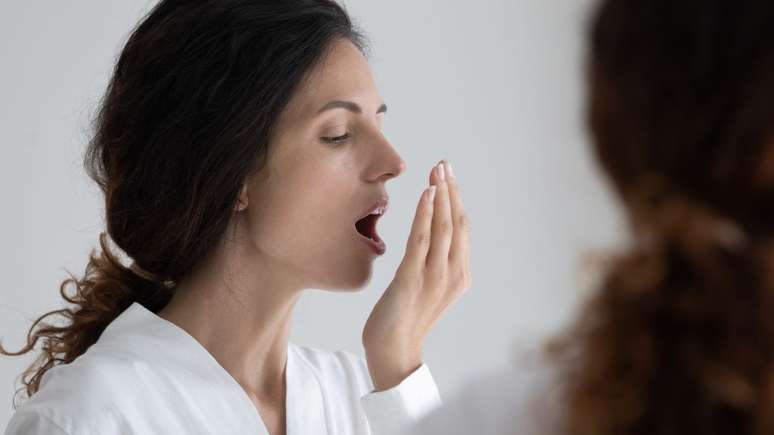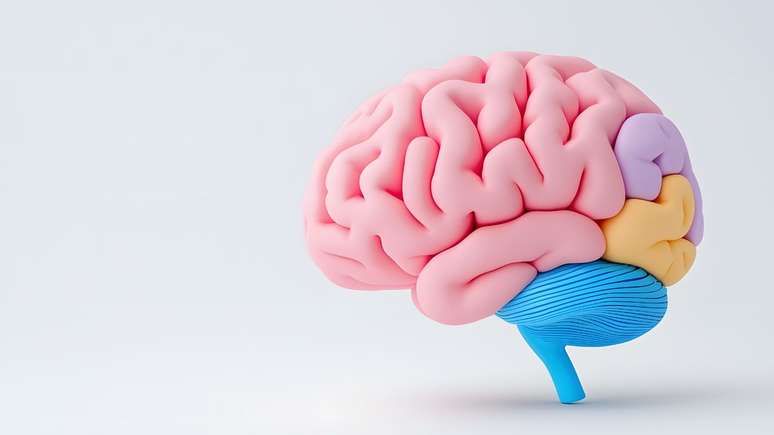Bad breath is a common problem, but can be resolved through oral health care; check what they are with Dr. Pamela Pironi
Bad breath, or halitosis, is a very common oral condition that causes discomfort and embarrassment in both those who perceive it and those affected by it. Most of the time, the person is not aware of the problem which makes it difficult to find a solution.
According to the dentist Dr. Pamela Pironi bad breath affects people of all ages, directly compromising their quality of life. “It’s an unpleasant smell that emanates from the mouth, and it can have different causes and types,” she comments.
What are the types of bad breath?
As the professional explains, halitosis is divided into physiological and pathological. Physiological bad breath is the common daily bad breath., caused by the decomposition of food remains in the mouth. Other causes are decreased salivation during sleep and prolonged fasting.
already the pathological bad breath is persistent bad breathcaused by diseases of the oral cavity such as caries, gingivitis, periodontitis, from the throatsuch as pharyngitis, tonsillitis and tonsil stones, e gastrointestinalsuch as gastroesophageal reflux.
Also, the smell can also vary. In cases where you look like feces, for example, care should be taken. “You may experience a proliferation of tonsil stones that lodge in the tonsil crypts,” Pamela points out.
What are the causes of bad breath?
In addition to pre-existing diseases, there are other factors that cause bad breath, listed by the dentist. See what they are below:
bad oral hygiene
Stopping to brush your teeth, floss your teeth, or clean your tongue and cheeks can cause bacteria and food debris to build up and putrefy and cause bad breath.
to smoke
Cigarettes and other tobacco products cause bad breath and can also cause diseases that aggravate bad breath.
Food
Foods such as garlic, onion, coffee, milk and cheese can cause bad breath, as their aromatic substances are eliminated from the lungs, releasing malodorous gases.
Dehydration
The lack of water in the body decreases the production of saliva, which favors the proliferation of bacteria in the mouth, leaving the salivation alkaline.
How to prevent?
To prevent bad breath it is important to brush your teeth 3 times a day, and after meals, always flossing and mouthwashes with natural essential oils and activated charcoal. You’ll find more recommendations below:
- Clean your tongue and cheeks with specific cleansers or with your toothbrush;
- Stay hydrated and consume fruit that contains a lot of liquids;
- Avoid excessive consumption of foods that cause bad breath;
- Quit smoking, if you are a smoker,
- Visit the dentist regularly to evaluate oral health and treat any diseases.
In case of persistent bad breath, the specialist recommends researching a dentist, otolaryngologist and gastroenterologist to investigate possible causes and indicate appropriate treatment. “Prevention and treatment of bad breath are important not only for oral health, but also for self-esteem, relationships and quality of life,” she concludes.
Source: Terra
Ben Stock is a lifestyle journalist and author at Gossipify. He writes about topics such as health, wellness, travel, food and home decor. He provides practical advice and inspiration to improve well-being, keeps readers up to date with latest lifestyle news and trends, known for his engaging writing style, in-depth analysis and unique perspectives.





![Here it all begins in advance: Carla discovers her true colors!… What awaits you in the week of October 27 – October 31, 2025 [SPOILERS] Here it all begins in advance: Carla discovers her true colors!… What awaits you in the week of October 27 – October 31, 2025 [SPOILERS]](https://fr.web.img4.acsta.net/img/1a/c9/1ac9c60c3279849c2babe78e208ce4ff.jpg)


